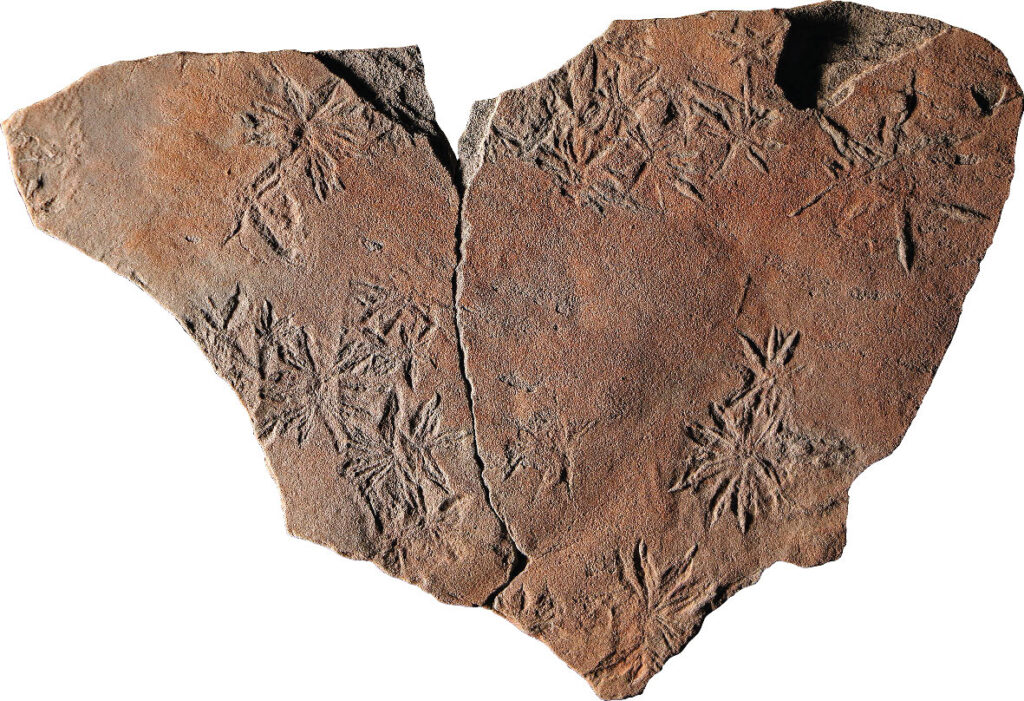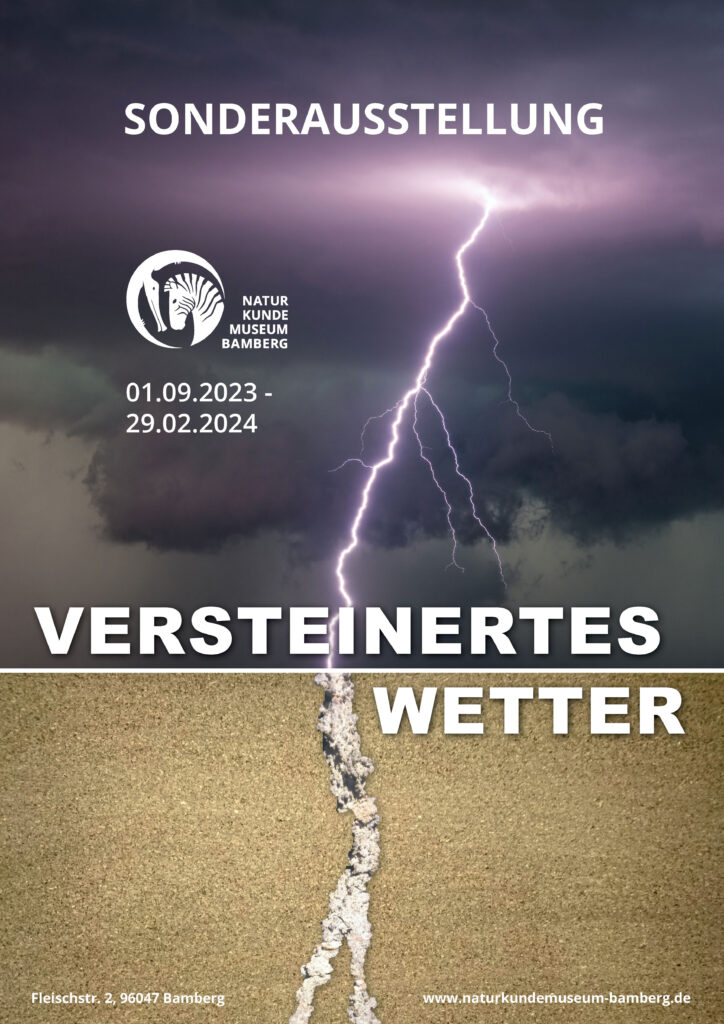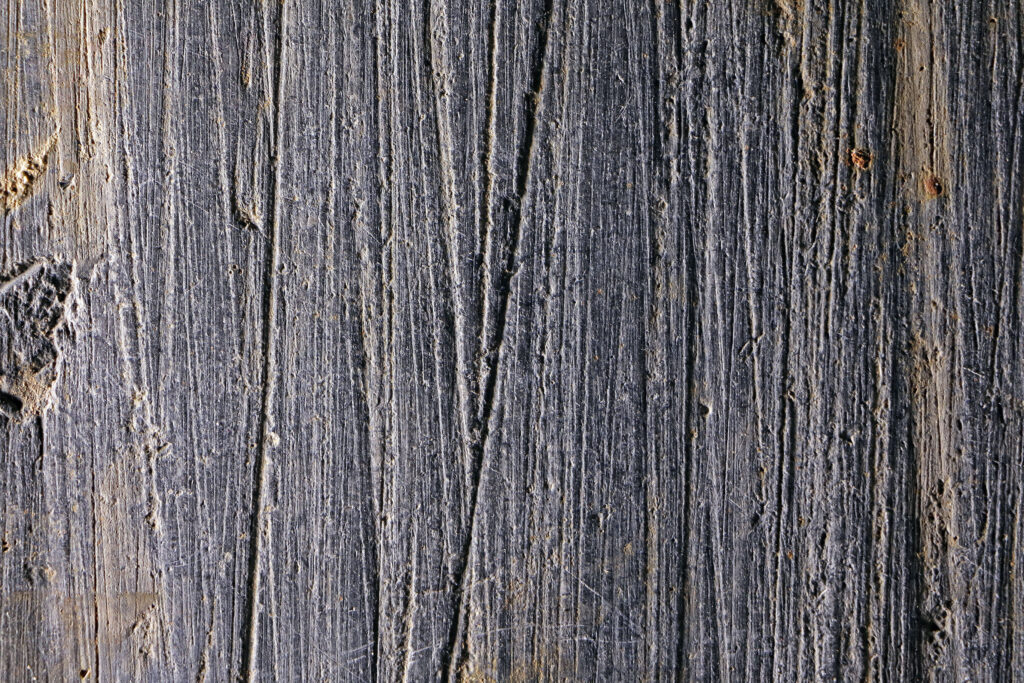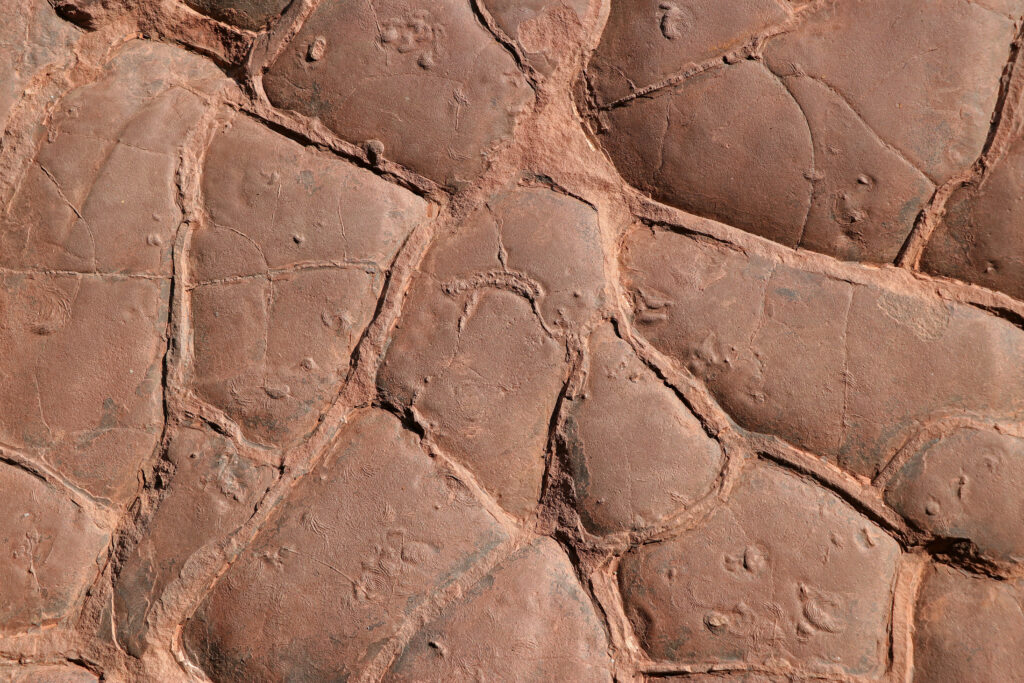Review: Petrified weather
Can lightning actually ‘petrify’? And what about raindrops? What traces does wind leave behind? We will get to the bottom of these questions in our new special exhibition from 1 September 2023. The duration has been extended until 31 March 2024!

‘Bad weather!’ said the dinosaur.
Weather influences us always and everywhere, regardless of the short-term atmospheric condition. Weather has already decided wars and destroyed entire civilisations. Yet weather phenomena are much older than the dinosaurs.

What do we actually know about the weather in the past? Historical records of this go back
only go back a few millennia at best. Stones, on the other hand, can store data for much longer, over hundreds of millions of years. Almost every known weather phenomenon can leave fossilised traces, some of which are among the most aesthetic formations of inanimate nature.
Come with us on an unusual journey through the world of the weather of yesterday, today and tomorrow! With spectacular geological objects, ten well-known weather phenomena – drought, heat, wind, storm, thunderstorm, hail, rain, flood, frost and snow – are examined in detail. You can also ‘make weather’ yourself at interactive stations.

The special exhibition designed by the GEOSKOP Burg Lichtenberg prehistoric museum contains exhibits from several German natural history museums and scientific institutions. It was created especially for
Bamberg with artefacts from the holdings of the Bamberg Natural History Museum and from Franconian archaeological sites. It not only shows spectacular traces of weather in the rock dating back millions of years, but also invites young and old to experiment and participate with numerous hands-on exhibits on various weather phenomena, including a lightning machine and a mini tornado.
The bilingual exhibition (German/English) will be on display at the Bamberg Natural History Museum until 31 March 2024.
